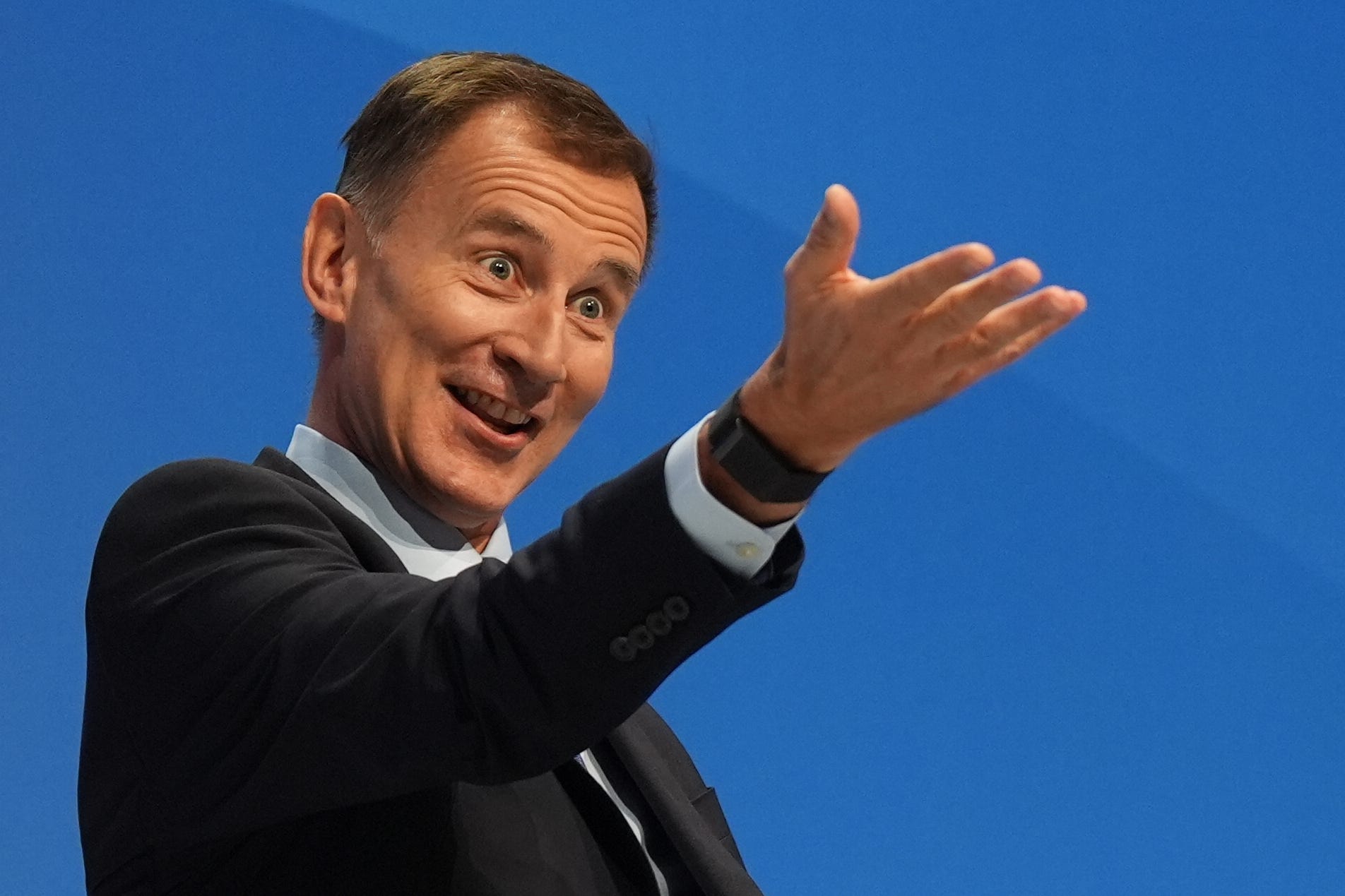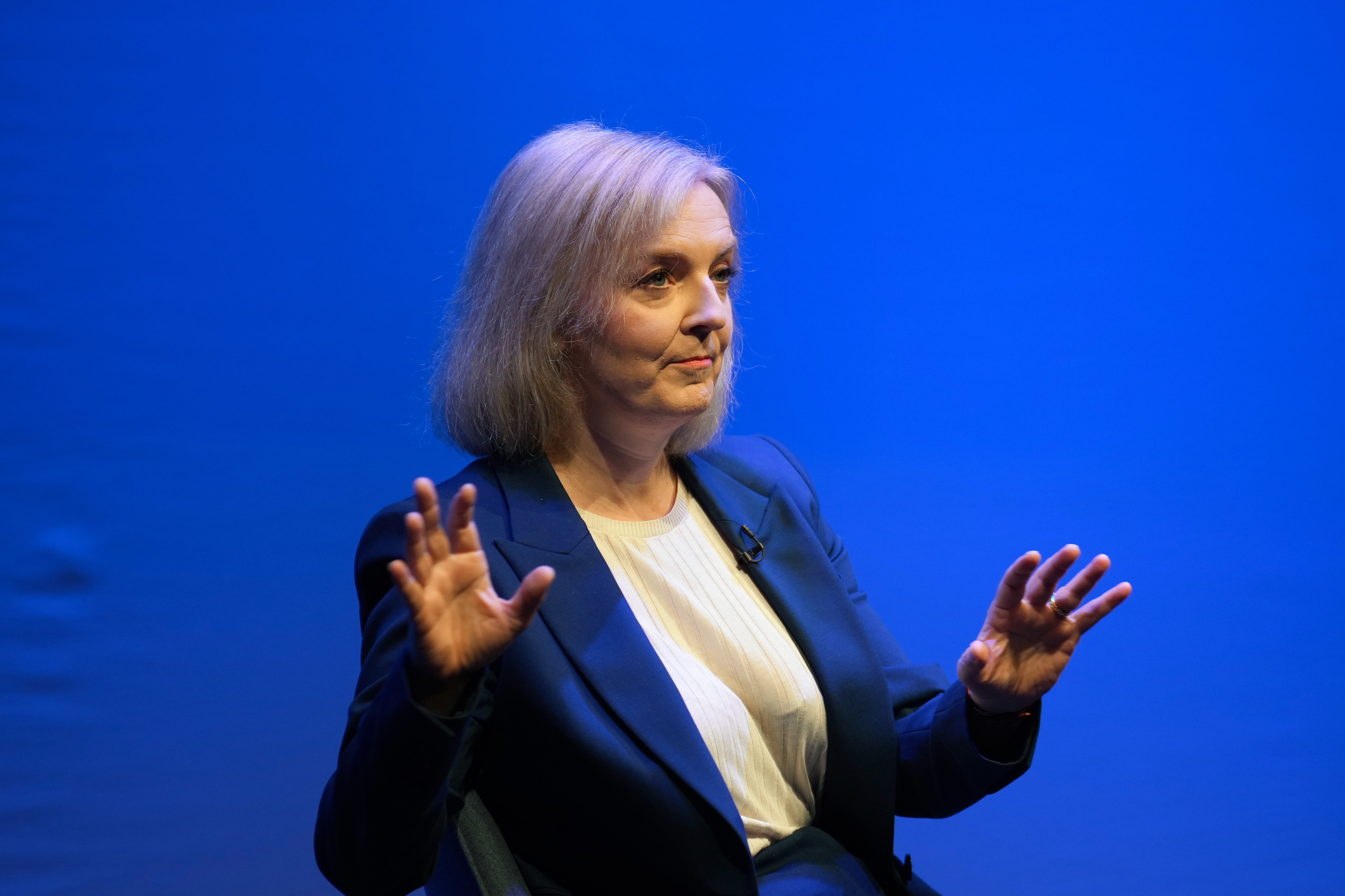Jeremy Hunt is fighting for his place in history – and the Tories’ future may depend on it
The former chancellor says Rachel Reeves’s budget ‘black hole’ is fiction. John Rentoul examines whether voters will listen
Jeremy Hunt came to talk to students at King’s College London this week. “I want to set you a challenge,” he told them. “The narrative that is prevailing about the British economy is totally mistaken. It is that politicians failed to make tough decisions; that Britain is trapped in a cycle of low growth; and that we are worse than comparable countries. None of this is true.”
As he set about trying to debunk the “fiction” promoted by Rachel Reeves, his successor as chancellor, he seemed to have two aims. One was to defend his record, making his case in what might be regarded as History’s first court of appeal: the “Chancellors and Treasury” postgraduate course at King’s taught by my colleagues Ed Balls and Chetun Patel.
But the other was more urgent, which was to push back against Reeves’s “narrative” – that the Conservatives crashed the economy and that Labour inherited a hidden “black hole”, requiring emergency action which was not mentioned in the party’s manifesto.
He has to succeed in this mission to give the Tories a chance at the next election. As long as the voters believe that the Tories drove the economy into a ditch, they are not going to give Kemi Badenoch and Mel Stride the keys to the car if Labour merely underperforms over the next few years.
Hunt set the scene by describing the way in which he became chancellor in October 2022. Kwasi Kwarteng’s unfunded tax cuts had gone down badly with the markets and the Tory party conference had been a disaster. Hunt was in Brussels for a break with his wife, Lucia, who doesn’t like flying, so they were exploring Eurostar destinations. He received a text from an unknown number saying, “Liz Truss here, please call.”

He said: “I assumed it was a prank, so I ignored it and went down to breakfast.” At breakfast he had a call from a withheld number and ignored that too. But then a former special adviser of his phoned, and said that Truss wanted to talk to him.
So he called 10 Downing Street. The private secretary said: “The prime minister is on another call. Can she call you back – no, wait, she’s come off the call. Putting you through.”
She said to Hunt: “This is not sustainable.”
So Hunt asked: “How do you want me to help?”
Truss said: “Chancellor.”
Hunt said his response was: “Bloody hell.”
He asked for half an hour to think about it, the most he thought he could request in the circumstances. His wife was “up for it”, as was his brother, whom he consulted. “Funnily enough, the thing that was on my mind was that I had been campaigning as chair of the health select committee to get a long-term workforce plan for the NHS. I thought, ‘If I can just be chancellor for a month, I could get that through.’”
When he called back to accept, he was aware that this was his moment of maximum leverage. He told Truss: “I’m going to have to take some very difficult decisions and I need you to back me.” Which, he said, she did.

He said: “The black hole that I had, and it was a real black hole not a fictional one, was £72bn. I had a week to fill it.” He was proud of the action that he took to stabilise the economy, and believes that he succeeded.
He contrasted his inheritance from Kwarteng with Reeves’s inheritance from him. When Labour took over, she claimed to have discovered a £22bn hole in the government’s accounts for the current financial year. He said: “I like Rachel, but an attack works only if it is true.”
His “narrative” was quite different: “The Office for Budget Responsibility said there was £9.5bn of ‘pressure’ on the reserves. A black hole is a gap you do not have a plan to fill. But £9.5bn is the sort of pressure that the chief secretary to the Treasury usually ‘manages away’ in the second half of the financial year.”
As for the other elements of the hostile narrative, he said he did not believe that Britain was permanently locked into a cycle of low growth: “What actually happened is that we have suffered three – or four, if you include Brexit – ‘black swan’ events: the financial crash, the pandemic and the energy shock.” He thought it was perfectly possible for previous rates of growth to return, provided governments didn’t crush the “animal spirits” of entrepreneurs, and that productivity growth in the public sector could be raised from 1 per cent a year to 2 per cent.
Nor did he think that Britain had performed worse than comparable countries: “The truth is that the US is the outlier, not us. The US economy has grown faster than other countries; as has its population and its productivity.”

He admitted that Britain has a specific problem with the welfare bill for working-age claimants, which is forecast to rise significantly. But, he said, “the increase in mental health claims for long-term sickness benefits makes no sense”, and the government should be working on that rather than blaming its predecessor.
He said the country suffers from a “lack of self-confidence that sometimes borders on self-loathing”, but that Labour should not be allowed to use that tendency to pretend that its inheritance was worse than it was.
I suspect that Hunt’s sunny optimism that public-sector productivity gains could have saved run-down public services without big tax increases is not going to persuade many historians – let alone voters.
I doubt that the winning Tory message at the next election will be that Hunt and Rishi Sunak left a golden legacy that Labour squandered. But Hunt deserves some credit for trying to correct some of Reeves’s exaggeration of the scale of the problems she inherited.
John Rentoul is a visiting professor at King’s College London
Join our commenting forum
Join thought-provoking conversations, follow other Independent readers and see their replies
Comments
Bookmark popover
Removed from bookmarks